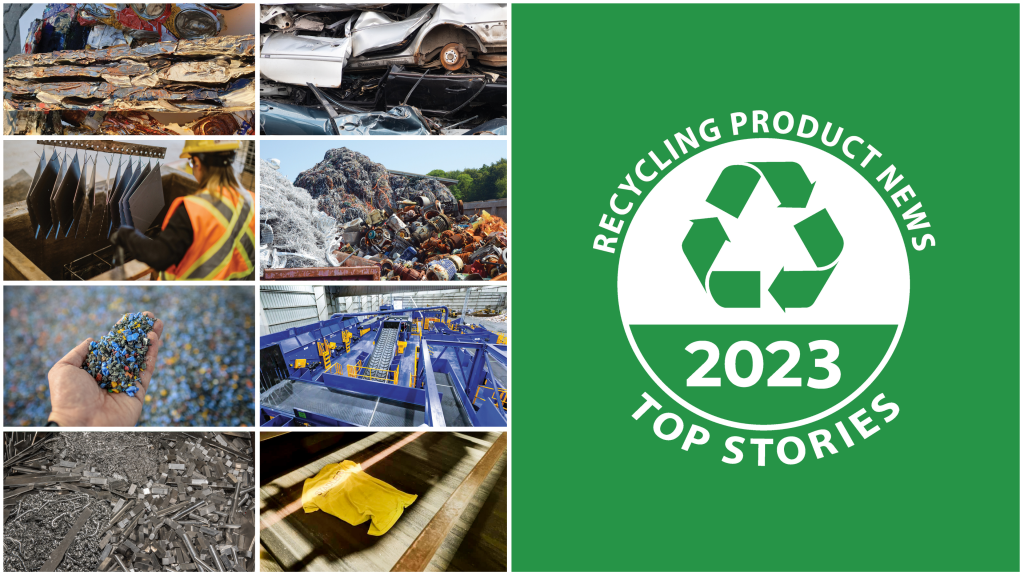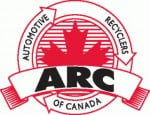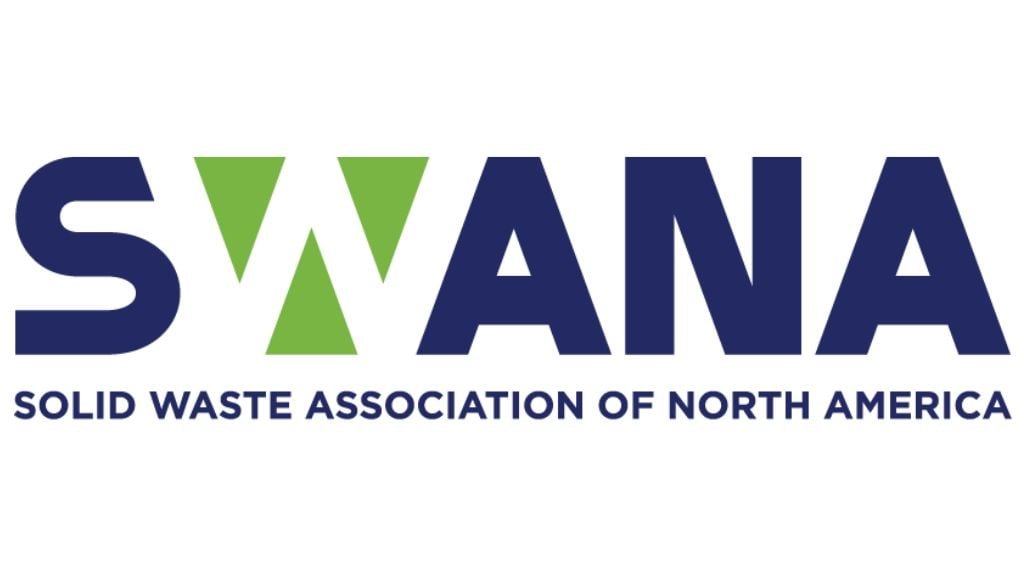
This year was a busy one, and to help make sure you don't miss out on our most popular stories from 2023, we've gathered them all into one place. Aerosol, iridium, textile, and auto recycling were all examined in-depth; market trends for commodities were investigated; and multiple industry experts shared their insights across all sectors. Other popular articles from this year dive into the development of intelligent MRFs and emerging technologies in the metals recycling industry.
In no particular order, check out our top 10 articles from 2023 below.
5 emerging technologies in the metals recycling industry
The metals recycling industry is always evolving. As part of this, metal recyclers have started to integrate new technologies that reshape their operations. These technologies are improving efficiency, sustainability, and profitability. AI, robotics, and other innovative solutions are optimizing metal recycling processes and contributing to a more circular ecosystem in the industry. Editor Slone Fox details these five emerging technologies and explains how they are poised to play a critical role in metals recycling.
Learn the five emerging technologies in the metals recycling industry in the full article.
Q&A: DJ VanDeusen on collaboration, industry challenges, and the evolving role of balers
How is collaboration affecting the recycling industry? Earlier in the year, Harris Equipment, American Baler, and International Baler jointly created the AVIS Recycling and Waste Equipment Division. This collaboration utilizes each company's collective experience to tackle the challenges and issues present in the waste and recycling industry. Slone Fox caught up with DJ VanDeusen to discuss supply chain issues, the evolving role of balers in waste management initiatives, and his vision for the future.
Read the Q&A between Slone Fox and DJ VanDeusen in the full article.
Navigating headwinds and tailwinds in the auto recycling industry
With over thirty years of experience in the automotive recycling sector, Steve Fletcher, the managing director of the Automotive Recyclers of Canada, knows a lot about the industry. Auto recyclers are currently facing numerous headwinds that are creating tough challenges to overcome and tailwinds that are bringing around positive changes to the industry. But despite these challenges, the industry is continually moving towards a more sustainable and circular economy.
Read Steve Fletcher's full article about the headwinds and tailwinds currently affecting the automotive recycling industry.
Q&A: Ryan Fogelman on safety hazards, industry challenges & fire prevention systems in action
Fire safety is a huge concern for recyclers. As electronics continue to find their way into waste streams, the recycling industry is at an increased risk of fire outbreaks. New solutions, technologies, and processes are continually being developed to help decrease the risk of fires in MRFs. Ryan Fogelman, the vice president of strategic partnerships at Fire Rover, is one of these people looking to create a safer, less-combustible recycling process.
Read the Q&A with Ryan Fogelman in the full article.
Three plastics market trends to watch out for
Markets are always evolving. Changes in consumer preferences, regulations, and technologies are just some of the factors that result in these changes. Especially in the plastics recycling industry, a lot of changes are aimed at increasing circularity. Hartmut Bendfeldt, the president of eFACTOR3, and Lennart Bendfeldt, the database sales manager at eFACTOR3, detail three trends starting to make waves in the plastics recycling industry.
Learn more about the plastics market trends in the full article.
Q&A: Jennifer Betts on diversity, social media, and labour retention in the metals industry
As the recycling industry continues to grapple with an ongoing labour shortage, attracting and retaining talent is more vital than ever. This is especially true as more of the current workforce nears retirement, and younger qualified workers become harder to find. To combat this, many companies are beginning to overhaul their approach to hiring by leveraging social media as a business tool, rather than just a communication platform, to reach a younger demographic.
Editor Slone Fox spoke with Jennifer Betts, founder of Magnar Metals, to discuss how her company is helping metals companies expand their audience, attract new talent, increase public awareness of the industry through social media, and more.
Check out the full interview here.
The past, present & future of aerosol recycling
When aerosol cans were first introduced, the idea of recycling and the circular economy wasn't yet a consideration. Landfilling and incineration were at the time the best practices, but this is no longer the case. With over 15 billion spray cans produced each year, a sustainable practice to recover the aluminum inside each aerosol can was needed. Despite that technology being present, the industry still has some hurdles to overcome. One of the largest hurdles is the public awareness around the recyclability of aerosol cans
Learn more about the past, present, and future of aerosol can recycling in the full article by Mike MacKay, the co-owner and managing director of Despray Environmental.
AI, data capture, and the development of the intelligent MRF
What is the intelligent MRF? Machinex has a pretty clear idea. Utilizing data capture and SCADA systems, the intelligent MRFs of today can increase efficiency and profitability. In these MRFs, vision systems collect data throughout the day to aid operations. But intelligent MRFs of the future can bring even greater benefits. Utilizing AI, these MRFs can improve the sorting process and improve the quality of output material.
Learn more about the AI, data capture, and the intelligent MRF of the future in the full article.
How McCol Metals is fueling the circular economy through iridium recycling
McCol Metals has developed a way to recover iridium from mixed metal oxide (MMO) anodes. Iridium has a high melting point, is resistant to corrosion, and is in scarce supply. Utilized in many different applications, including electric fuel cell technology, the demand for iridium has exceeded the rate at which it is mined. Bridging this gap has become an important step in creating a more circular economy and a world where iridium isn't in scarce global supply.
Find out more about McCol Metals' iridium recycling technology in the full article by Samantha Harding, the director of marketing and communications at McCol Metals
The challenge of sorting and recycling textiles
Clothing production has doubled in the past 15 years. Despite this increase in production, only a tiny fraction of textiles are recycled, and the amount of times that clothing is worn has fallen 30 percent. Fast fashion has driven a decrease in textile quality, resulting in more clothes ending up in landfills. Clothes contain a multitude of different materials – natural and synthetic fibres, metals, plastics, buttons, and zips – and for an industry that looks for pure fractions or specific mixtures, this creates a challenging and labour-intensive effort to recycle even a small percentage of textiles.
What are some of the technologies trying to bridge the gap towards a circular economy for textiles? Find them and the efforts STADLER is making in the full article.
Company info
6960 Orchard Lake Road, Suite 303
West Bloomfield, MI
US, 48322
Website:
firerover.com
Phone number:
844-417-6837
15050 Choate Circle, Suite E
Charlotte, NC
US, 28273
Website:
efactor3.com
Phone number:
704-944-3232










